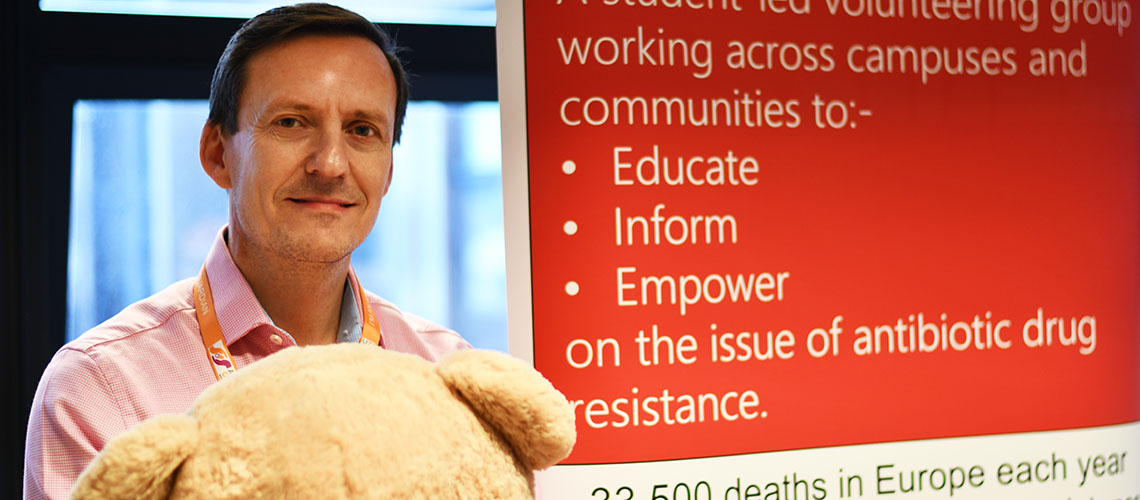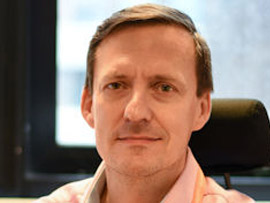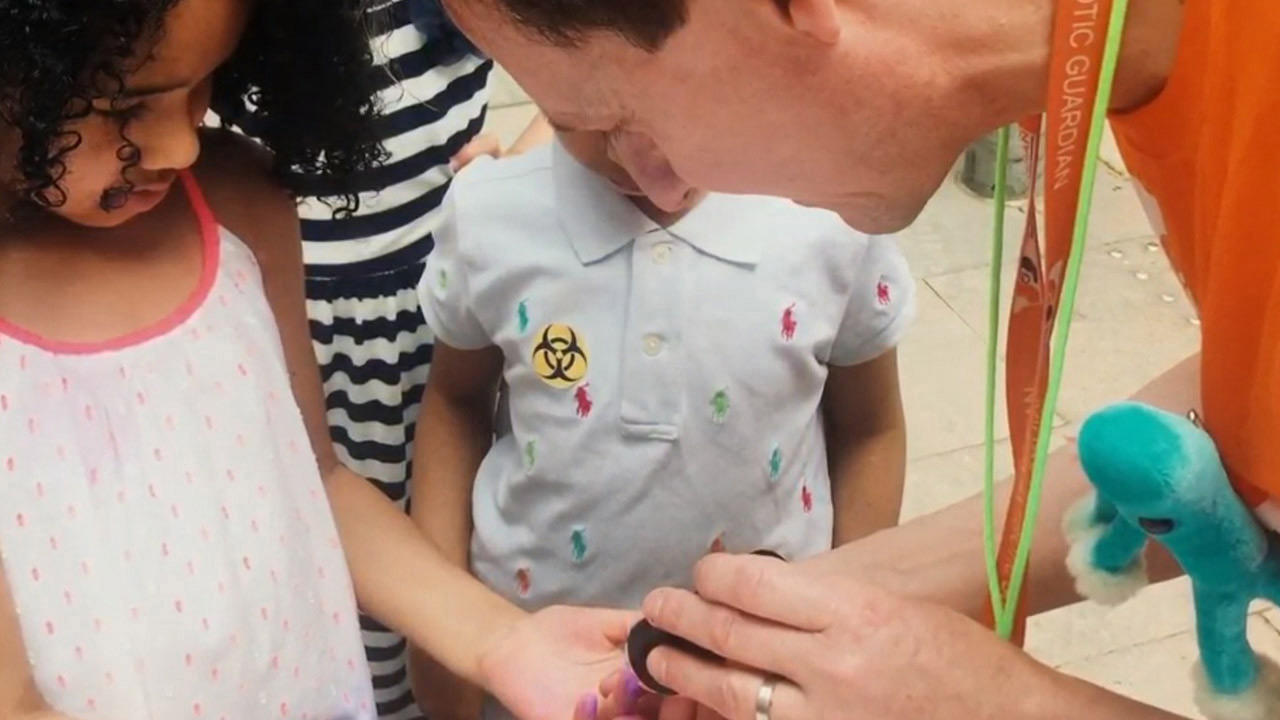Crowdsourcing action on antimicrobial resistance
What could be the most effective way of spreading awareness of one of the biggest issues facing the world today? Engaging the public and giving them the tools to pass the message on to more people, according to one Manchester academic.

A senior lecturer in public health at Manchester, Dr Roger Harrison has spent the last few years working on projects to educate students, patients, public and health professionals both in the UK and abroad about antimicrobial resistance (AMR), which incorporates antibiotic resistance.
The challenge
Antibiotic resistance specifically refers to the natural evolution of bacteria that cause infections to become less vulnerable to a particular antibiotic. In other words, they are clever at quickly adapting for their own survival.
The problem is a hugely significant one. As many as ten million deaths a year around the world are estimated to result from antibiotic-resistant diseases by 2050 if large-scale, effective action is not taken, the UN says in an April 2019 report. At least 700,000 deaths are currently caused each year by these diseases.

Dr Roger Harrison
Roger is a Senior Lecturer with interests in public health education and research, epidemiology and evidence-based practice.
Reducing the risk of antibiotic resistance needs active intervention by individuals and organisations across all sectors of society. Yet many people do not understand the fundamental issue: antibiotics cannot be relied upon now and in the future. Paradoxically, increasing numbers of people who need antibiotics do not get them, highlighting what Roger says is an alarming disparity.
However, greater public awareness of the issue could help, particularly when it comes to simple preventative actions. For example, regularly and correctly washing hands with soap and clean water in addition to the appropriate use of antibiotics will have a massive impact, as advocated in a Manchester campaign.
Roger became interested in AMR when he gave a talk at a primary school and asked the pupils questions relating to the topic, only to find that they had already done a project on the life and influence of the renowned 'inventor' of penicillin, Alexander Fleming, who relied on others to see the tremendous importance of his discovery to human life.
He also came to realise that many people could just buy antibiotics from their local corner shop in some countries in Asia and sub-Saharan Africa. In the UK, people are even selling them to friends on Facebook.
"It started me on what my partner and colleagues might say is an obsession with helping people realise how phenomenally important this topic is," Roger says. "It's up there with climate change – that's the seriousness of it all."
Spreading the word
Roger started relatively small at first, sending students into local primary schools to help raise awareness of antibiotic resistance and working with the Medics in Primary Schools initiative. He then linked up with Dr David Allison, a Reader in pharmacy education, who continues to work in secondary schools with pharmacy undergraduates.

The team continued to grow, and they convinced the University's senior leadership and social responsibility team to form a flagship programme related to public, patient, and professional education and engagement.
Large events have since taken place on and off campus as part of World Antibiotic Awareness Week and European Antibiotic Awareness Day. However, Roger appreciated the need to get more people involved, as he and his team simply weren't enough.
"I was influenced by crowdsourcing and crowdfunding, which is done very much on the basis of going out into the population and providing opportunities for more individuals to start doing something positive," he explains. "There's a lot of work to do in Manchester, the UK and around the world."
This has led to a new campaign called One Student, One Campus, One World. "We've gone from primary school to high school and into universities, the local health economy and now out into the big wide world," Roger says.

This international focus came about when Roger spoke to Helen Slattery, who leads Manchester University NHS Foundation Trust's (MFT) Global Exchange Programme. The scheme helps health professionals to volunteer in Gulu, Uganda to help implement sustainable positive changes to local health systems.
One successful grant application later, Roger was one of only 12 people in the UK to be awarded a grant through the Fleming Fund, with Tropical Health Education Trust. He has formed a team with experts from Manchester Metropolitan University, Health Education England and MFT to improve antibiotic stewardship in two hospitals in Gulu.
“We want to move to a situation where our healthcare graduates leave here with the best level of understanding.”
"We also want to help our own NHS staff to bring back their shared learning and experiences and look at what else we can do over here in terms of policies and practices relating to antibiotic resistance," Roger adds. "Some of the issues are similar; the scale is just alarmingly different at times."
Inspired by crowdsourcing and citizen science initiatives, he has also set up the International Students' Partnership for Antibiotic Drug Resistance Education (ISPARE) to enable student associations around the world to work together on this important theme. He now has student teams in Uganda, Rwanda and Tanzania, and is academic lead for a community-based project across 16 countries in Africa – all stemming from student partnerships.
The future
The work will not end there. Roger and David also want to tailor AMR messaging for different groups, including those facing barriers to good practice.
Closer to home, Roger is working with senior academics in the Faculty of Biology, Medicine and Health to enhance the curriculum for all student health professionals. "We want to move to a situation where our healthcare graduates leave here with the best level of understanding to then go out and change practice in the workplace," he explains.
Roger points out that he is not the antibiotic police, nor does he advocate banning antibiotics. He stresses that we need to ensure there is an effective antibiotic available for when someone clinically needs it, at the right time, in the right dose and in the right way.
Currently, antibiotic resistance is having a fundamental impact on reducing the chances of this happening for many people now and in the future.
Learn more about the work that Roger and his colleagues are doing through Twitter by following Roger (@roger_manc), Uganda-Antimicrobial Stewardship (@U4AMS) and ISPARE (@ISPARE_Global).
